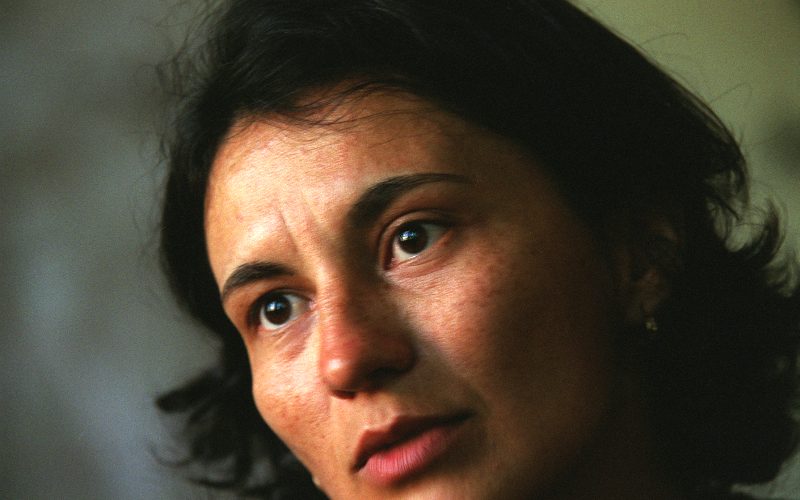Elena Gulmadova was born in Dushanbe, Tajikistan. Her father was Muslim and her mother Christian. She saw violence and instability early in life during the Tajikistani Civil War. The fighting had started after Tajikistan’s 1991 break from the Soviet Union and subsequent presidential election, which was contested. During this time, Elena enrolled in a medical program, specializing in gynecology. In a story reported by Peace Counts, she said delivering “every new baby is a nice success experience.” It was difficult delivering babies during the war, however, because of frequent blackouts. Eventually Elena’s family fled to Ukraine where they lost contact with her father.
Elena joined the Organization for Security and Cooperation in Europe (OSCE), the world’s largest regional security organization, after seeing the good they did for her country during the civil war. As an OSCE mediator, Elena used her life experience to understand the plight of those enduring similar hardships in a way that Western moderators could not.
In 2001, Elena set out for Macedonia, a country where Muslim Albanians and Christian Macedonians had lived in peace for the better part of a decade. In the latter part of 2000, however, the country experienced a rash of attacks on Macedonian police and security forces. On January 22, 2001, a group of armed Albanians attacked a police station. One officer died, and three others were injured. This sparked a conflict lasting six months, killing hundreds and forcing more than 140,000 from their homes in fear.
Elena began to mediate and gain the trust of the local groups near Matejce. She provided both practical advice and counseling to those remaining in the area. With her optimistic outlook, she made sure the staff at local facilities understood their options and the application process for EU reconstruction funding. These efforts would help bring back people back to the neighborhoods and restore peace.
Elena made it her business to introduce herself to the entire community and the surrounding areas where she served. She was open about her work and intentions. “I inform as many organizations, government offices and people as I can of who I’m currently talking to and what we’re doing,” she said, as reported by Peace Counts. Her approach paid off.
One day, Elena received a call from the mayor of a nearby village pleading for help. Gunfire had erupted in the mostly Albanian village, prompting the Macedonian police to open fire for fear the Albanian National Liberation Army had staged an attack. Elena called the Macedonian police chief and relayed the urgent message from the village mayor—the gunfire was not an attack, but rather a joyful wedding celebration. The police chief, while defending the call to open fire, stood the squad down. The crossfire injured no one. Calm nerves and quick thinking on Elena’s part helped diffuse a situation that could have reignited the conflict that had brought her to Macedonia.
“As long as people are talking to each other, they hold their fire.”
—Elena
(as reported by the Berghof Foundation)
References
Gleich, M. (n.d.). “Macedonia: Elena mediates.” Peace Counts. Retrieved from peace-counts.org/macedonia-elena-mediates/
“Report: Elena mediates.” (n.d.). Berghof Foundation. Retrieved from friedenspaedagogik.de/archiv/ausgewaehlte_projekte_2008_2011/
Tajikistan country profile. (1 September 2015). BBC online. Retrieved from bbc.com/news/world-asia-16201032
“Who we are.” (n.d.). In osce.org. Retrieved from osce.org
Image credit: by Uli Reinhardt on Peace-counts.org


